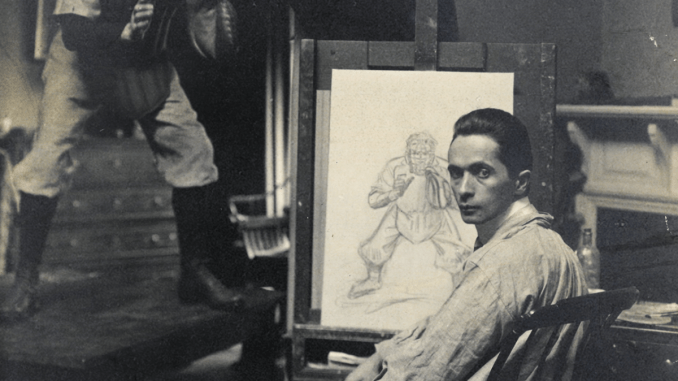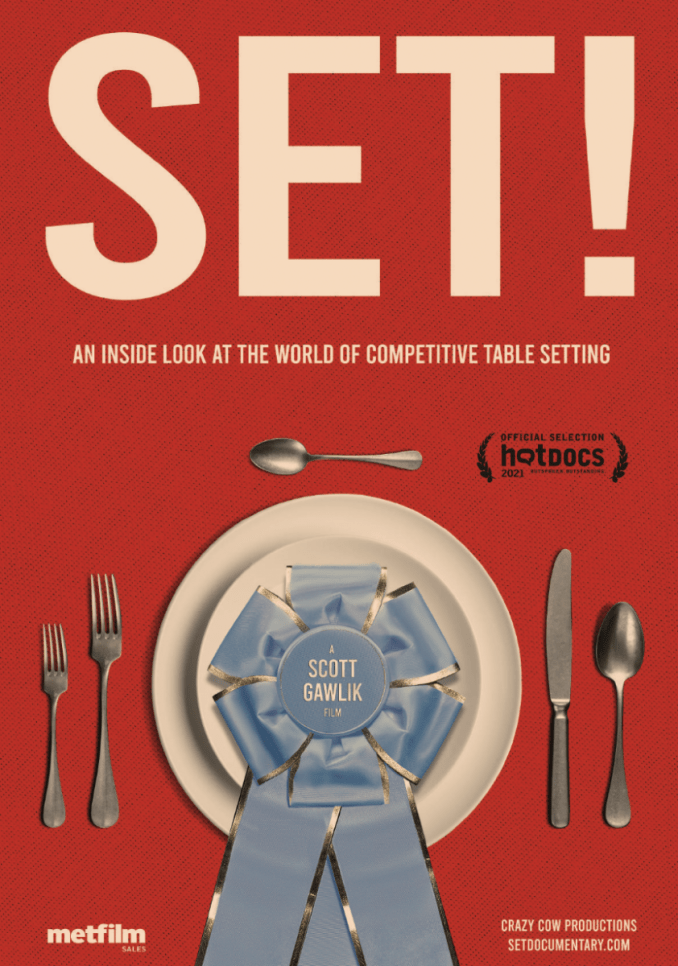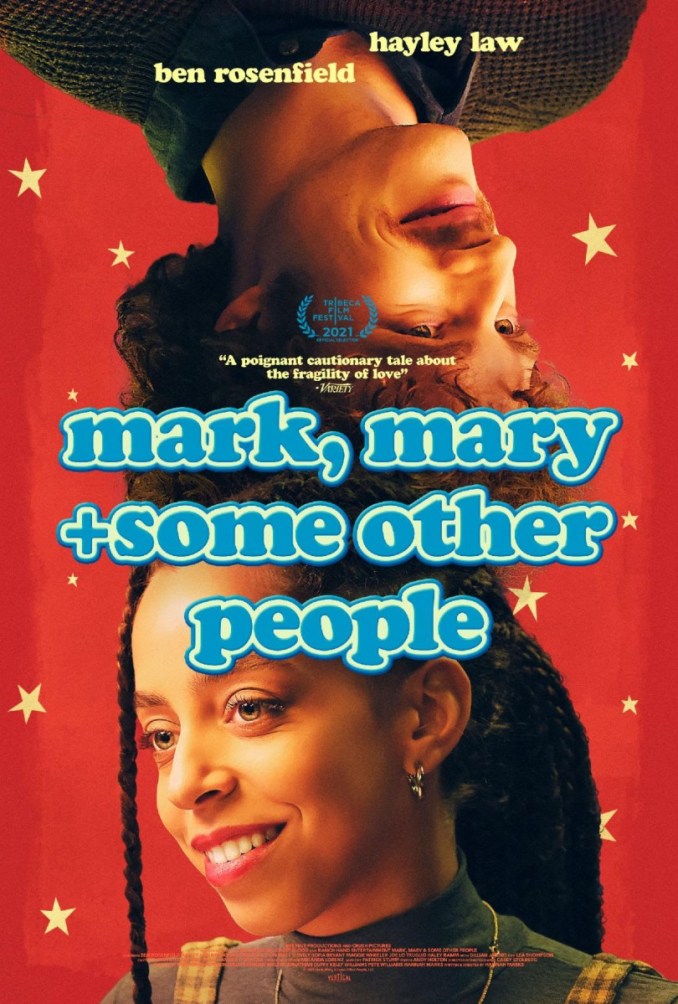
Coded: The Hidden Love of J.C. Leyendecker

This is what most short films aspire to be– a brief 30 minutes that conveys a story so completely it feels like a much longer narrative. An exposition on the homoerotic imagery within the art of J.C. Leyendecker, Coded excels at blending what is essentially an art history lesson with its present-day significance and with a deeply romantic love story to boot. As someone who is always here for a story about true love, this one left an impression that is unlikely to fade.

Don’t Go Tellin’ Your Momma
Overflowing with cool-kid energy, this short film dazzles and delights. A tribute to the Black ABCs and growing up in New Jersey, Don’t Go Tellin’ Your Momma excels in quickly establishing a sense of place. This is a film about black people that is made for black people, i.e. Art that deeply respects its subject. The colors and angles of the shots are gripping, trippy, and mesmerizing. Viewing was akin to walking through an art exhibit: what do all the disparate clips mean? You get the sense of it but it’s mostly vibes.
For more info on DOC NYC 2021 click here!



 Ahmir “Questlove” Thompson’s directorial debut is simply brilliant. It might almost be a given that as a world-famous and beloved D.J., every musical and visual choice in Summer of Soul masterfully cultivates a vibe and maintains that dazzling energy for the length of the entire film. In addition to showcasing a great party, Summer of Soul provides viewers with the essential historical and cultural context to fully appreciate what they are witnessing. Through passionate first-person narratives from attendees, the film balances what in less experienced hands might have become merely a history lesson with one hell of a show.
Ahmir “Questlove” Thompson’s directorial debut is simply brilliant. It might almost be a given that as a world-famous and beloved D.J., every musical and visual choice in Summer of Soul masterfully cultivates a vibe and maintains that dazzling energy for the length of the entire film. In addition to showcasing a great party, Summer of Soul provides viewers with the essential historical and cultural context to fully appreciate what they are witnessing. Through passionate first-person narratives from attendees, the film balances what in less experienced hands might have become merely a history lesson with one hell of a show. 


 Karam’s use of sound, in particular, makes
Karam’s use of sound, in particular, makes  Beanie Feldstein
Beanie Feldstein The Humans
The Humans




 Peppergrass
Peppergrass Chantelle Han
Chantelle Han




 My aunt has always used homeopathic remedies. She’s beaten breast cancer twice. As someone with chronic pain from a neck injury caused by a car accident, anxiety since childhood, severe dance injuries, and phantom pain and diastasis recti from two C-sections, I would love to find ways to heal myself juts like I found the
My aunt has always used homeopathic remedies. She’s beaten breast cancer twice. As someone with chronic pain from a neck injury caused by a car accident, anxiety since childhood, severe dance injuries, and phantom pain and diastasis recti from two C-sections, I would love to find ways to heal myself juts like I found the  In
In 


 Is “the Pill” killing us? Perhaps not, according to the innumerable doctors who prescribe it to 11 million women. 35% of which are for reasons other than preventing pregnancy. Anytime I heard about my girlfriends going on birth control in high school or college, it was the same complaints; weight gain, mood swings, depression, and suicidal ideation. I never went on the pill because I was terrified by the side effects. In
Is “the Pill” killing us? Perhaps not, according to the innumerable doctors who prescribe it to 11 million women. 35% of which are for reasons other than preventing pregnancy. Anytime I heard about my girlfriends going on birth control in high school or college, it was the same complaints; weight gain, mood swings, depression, and suicidal ideation. I never went on the pill because I was terrified by the side effects. In  I struggled to get pregnant for eight months. Every month I cried when the pregnancy test was negative. Then someone turned me onto an app very similar to the method discussed in the doc. I tracked my temperature each morning and some other information because you cannot get pregnant every day of your cycle, but that’s not what has been drilled into our heads since Sex Ed class in 5th grade. Within three months, I was pregnant, and I knew because of my spike in temperature. I knew before taking a test because I had learned the natural cycle of my body.
I struggled to get pregnant for eight months. Every month I cried when the pregnancy test was negative. Then someone turned me onto an app very similar to the method discussed in the doc. I tracked my temperature each morning and some other information because you cannot get pregnant every day of your cycle, but that’s not what has been drilled into our heads since Sex Ed class in 5th grade. Within three months, I was pregnant, and I knew because of my spike in temperature. I knew before taking a test because I had learned the natural cycle of my body. 




 JAGGED
JAGGED

 Competitive tablescaping? Yes, you read that correctly. What, praytell, is competitive tablescaping? Well, it’s only the most amazing, strange, imaginative, cutthroat sport you’ve probably never heard of. Each year, under the guidance of a specific theme, competitors create place settings that will either wow or ward off a panel of judges and their fellow contestants. In
Competitive tablescaping? Yes, you read that correctly. What, praytell, is competitive tablescaping? Well, it’s only the most amazing, strange, imaginative, cutthroat sport you’ve probably never heard of. Each year, under the guidance of a specific theme, competitors create place settings that will either wow or ward off a panel of judges and their fellow contestants. In  Every inch and angle of cutlery and drinking glasses amounts to a point total. Scores are a cumulative system where one tiny mistake could cost you the top prize, which I think is bragging rights and not the 50 cent ribbon. What makes this sport so massively entertaining comes down to the interpretation of the theme and the competitors’ personalities. In
Every inch and angle of cutlery and drinking glasses amounts to a point total. Scores are a cumulative system where one tiny mistake could cost you the top prize, which I think is bragging rights and not the 50 cent ribbon. What makes this sport so massively entertaining comes down to the interpretation of the theme and the competitors’ personalities. In  The judging is rigid. The rules are clear, but that doesn’t mean some of the comments aren’t questionable. Gawlik presents this aspect with glorious tongue-in-cheek energy through the film’s editing. But the drama pervades the entire process. A mostly female-dominated pastime, SET! also features a male competitor, Tim, who made his Dr. Suess-themed table on a literal dime. Others spend thousands on a single display. The snark, the tears, and the infighting make SET! something akin to
The judging is rigid. The rules are clear, but that doesn’t mean some of the comments aren’t questionable. Gawlik presents this aspect with glorious tongue-in-cheek energy through the film’s editing. But the drama pervades the entire process. A mostly female-dominated pastime, SET! also features a male competitor, Tim, who made his Dr. Suess-themed table on a literal dime. Others spend thousands on a single display. The snark, the tears, and the infighting make SET! something akin to 
 In the aftermath of Hurricane Katrina, people lost homes, heirlooms, family, and stories. In
In the aftermath of Hurricane Katrina, people lost homes, heirlooms, family, and stories. In  Watching
Watching 

 Director
Director 
 Are you ready for a doc to charm the pants off of you? I don’t think you are.
Are you ready for a doc to charm the pants off of you? I don’t think you are. 

 Grief is a personal journey. When your person gets ripped from your orbit, all bets are off. “Coping” can mean destructive behavior in the form of alcohol, binge eating, even self-harm. Or, grief can manifest itself into the most creative outlets. In Zowie’s case, pain and darkness are where she’s become comfortable. It’s also where her sister appears to her, bringing her momentary joy. In
Grief is a personal journey. When your person gets ripped from your orbit, all bets are off. “Coping” can mean destructive behavior in the form of alcohol, binge eating, even self-harm. Or, grief can manifest itself into the most creative outlets. In Zowie’s case, pain and darkness are where she’s become comfortable. It’s also where her sister appears to her, bringing her momentary joy. In 

 “Traditional” relationships structures were created by, well, who knows. Love is weird and complicated, no matter how hard we try. We’re only human. We have urges that are as basic as they come. Anyone who claims to not be attracted to a person outside of their monogamous relationship is a liar. Love is messy and ever-evolving, and writer-director Hannah Marks gets that. Marks popped onto my radar with
“Traditional” relationships structures were created by, well, who knows. Love is weird and complicated, no matter how hard we try. We’re only human. We have urges that are as basic as they come. Anyone who claims to not be attracted to a person outside of their monogamous relationship is a liar. Love is messy and ever-evolving, and writer-director Hannah Marks gets that. Marks popped onto my radar with
 In most true crime stories, the mystery of “what really happened” carries the narrative. Viewers are invited to reconstruct timelines and decipher motives, then try and solve the crime simultaneously with the professional investigators. Alice is Still Dead turns that formula on its head. For instance, what if there is a brutal murder, but the facts– while devastating– are relatively straightforward? What if the central protagonist is tragically incidental to the killer’s motive? What if the police and justice system function exactly as society intends them to do? This film illustrates that even without the standard narrative hooks of true crime, a shocking senseless death is still a story. There is still a family that must find a way to carry on despite their grief and try to find contentment with the limits of justice.
In most true crime stories, the mystery of “what really happened” carries the narrative. Viewers are invited to reconstruct timelines and decipher motives, then try and solve the crime simultaneously with the professional investigators. Alice is Still Dead turns that formula on its head. For instance, what if there is a brutal murder, but the facts– while devastating– are relatively straightforward? What if the central protagonist is tragically incidental to the killer’s motive? What if the police and justice system function exactly as society intends them to do? This film illustrates that even without the standard narrative hooks of true crime, a shocking senseless death is still a story. There is still a family that must find a way to carry on despite their grief and try to find contentment with the limits of justice. 
You must be logged in to post a comment.